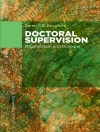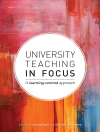CHOICE Outstanding Academic Title 2022
In this thought-provoking volume, editors Rebecca M. Taylor and Ashley Floyd Kuntz invite readers to explore the many facets of on-campus ethical dilemmas and the careful, nuanced decision-making processes required to address them.
Taylor and Kuntz demonstrate how to apply collaborative, multidisciplinary, philosophical inquiry to deeply complex issues. They present seven normative case studies focusing on a variety of campus quandaries, from urgent matters such as Title IX violations and free speech in social media policy to long-simmering concerns such as admissions and access and the future of historically Black colleges and universities. The editors then bring together a diverse group of scholars and practitioners with a broad array of disciplinary and personal backgrounds to offer their commentary and insight on the cases.
Leaders in higher education are under immense pressure to respond to campus crises quickly, to quell controversy, and to avoid the backlash of public scrutiny in an ever-shifting sociopolitical terrain. Yet, in tension with such pressures, adequate responses to these dilemmas require leaders to make ethical, contextual choices that effectively foster inclusion, respect individual and institutional freedoms, and promote equity.
Expanding the scope of inquiry, the contributors challenge underlying assumptions, raise points that had been omitted from the original cases, and imagine alternative solutions.
Ethics in Higher Education appeals to readers to do the same, in the interest of advancing ethical decision-making on campuses.
Circa l’autore
Rebecca M. Taylor is an assistant professor in the Department of Educational Policy, Organization and Leadership at the University of Illinois at Urbana-Champaign. Growing up in rural Appalachia, she became aware of inequities in our educational and social systems and the challenges of living and learning in community when values conflict—issues she now explores through the study of educational ethics. Prior to joining UIUC, she was an assistant professor at Suffolk University, postdoctoral fellow at Emory University, and research associate in the Stanford Criminal Justice Center. Her work has appeared in various journals, including Harvard Educational Review, Educational Theory, Journal of Philosophy of Education, Democracy and Education, and Educational Philosophy and Theory. Dr. Taylor holds a Ph D in philosophy of education from Stanford University, a master’s degree in peace, conflict, and development studies from Universitat Jaume I, and a bachelor’s degree in mathematics and philosophy from Washington University in St. Louis.Ashley Floyd Kuntz is clinical assistant professor of higher education and director of prestigious scholar development at Florida International University. Dr. Kuntz’s experiences as an administrator, professor, and mentor at both public and private universities inform her understanding of and responses to the cases and commentaries in this volume. A first-generation college student from rural Alabama, she received a BA in psychology from Samford University, then worked full-time while earning an MA and Ph D in higher education administration from the University of Alabama. As a graduate student, she benefited from a philosophy of education fellowship through the Spencer Foundation, which complemented and extended her study of higher education. Her work has appeared in Harvard Educational Review, Philosophy and Theory in Higher Education, and Emerging Adulthood.












